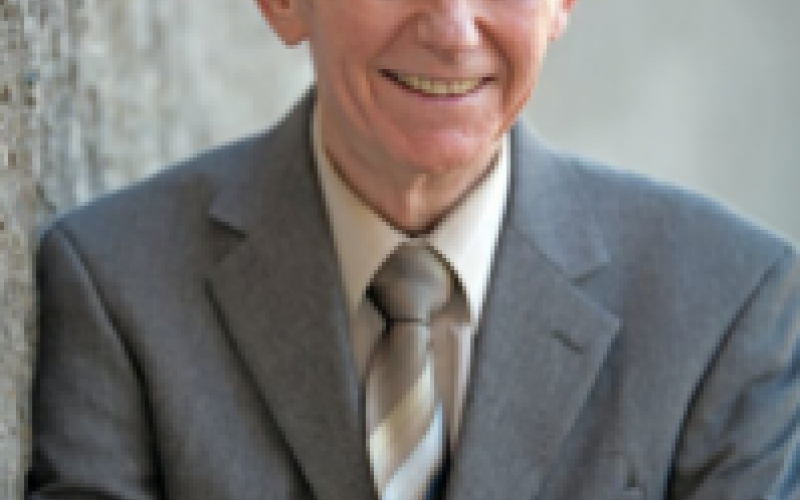Lee Rothfarb lecture on Taking Hanslick at His Music-Theoretical Word
Thursday 9 May 2019, 4pm, CAC Colloquium Room 3201
Eduard Hanslick emphasizes the notion of form throughout his watershed On the Musically Beautiful. Given the centrality of the concept of form in his music aesthetics, one would expect it to be somewhere clearly defined in the treatise. However, such is not the case. From a music-theoretical vantage point, it remains surprisingly vague. Notwithstanding the sustained influence of the oft-quoted phrase about “sonically moved forms” being the content of music—the first edition says the sole and exclusive content (“einzig und allein”)—that motto and numerous other references to form do not lead Hanslick to expound systematically or at any length on what he means by it. He leaves us clues, but we must collect and correlate them from various passages in the book. Through such a collection and correlation, the paper begins by attempting to define Hanslick’s concept of form, then observes it in action in Hanslick’s analysis of a brief Beethoven’s excerpt. The unexpected conclusion he draws from the analysis leads to a discussion of New Musicology’s attacks on the late twentieth-century practice of analysis, beginning with Joseph Kerman, from there to Pieter van den Toorn’s 1995 defense of analysis and, in light of that defense, finally to an adjusted understanding of Hanslick’s notion of musical form.
This lecture is free and open to the public.
This lecture is based on the new translation of Vom Musikalisch-Schönen by Lee Rothfarb and Christoph Landerer

Professor Rothfarb is past member of the Editorial Board of The Journal of Music Theory, Founding Editor of the SMT electronic journal Music Theory Online (MTO), founder of SMT’s networking, and former administrator of its original networking host, Boethius.
He specializes in the history of music theory and analysis from the Greeks through Schenker, with an emphasis on the period 1800-1930; nineteenth-century German aesthetics; early development of the sonata form in keyboard music (1740-70), chromatic harmony. Current research includes early music-analytic reception of Bruckner and the nature and significance of lay-education in music during Germany’s Wilhelmine and Weimar periods. His latest publications are Eduard Hanslick’s On the Musically Beautiful: A New Translation (co-translated with Christoph Landerer, Oxford University Press), “Henryk Szenker, Galitzianer: The Making of a Man and a Nation” (Journal of Schenkerian Studies), and “Hanslick’s Hauptsatz: Brahms and Bruckner” (conference volume, forthcoming). He is also the author of Ernst Kurth: Selected Writings (Cambridge University Press, 1991) and Ernst Kurth as Theorist and Analyst (University of Pennsylvania Press, 1989). The latter book received the Society for Music Theory Outstanding Publication Award in 1989. He is a Contributing Scholar to the online publication of The Correspondence of Heinrich Schenker, as translator of the letters between Schenker, August Halm, and Karl Grunsky. His articles include “Musical Body and Spirit in Brahms and Bruckner” (19th Century Music), “Energetics” (Cambridge History of Western Music Theory, Cambridge University Press, 2001), “Zwischen Originalität und Ideologie: Die Musik von August Halm (1869-1929)” (Musik Baden-Württemberg, 1998), “Musik und Theologie: August Halm am Kreuzungspunkt seines beruflichen und schöpferischen Weges” (Musik Baden-Württemberg, 1996), “Beethoven’s Formal Dynamics: August Halm’s Phenomenological Perspective” (The Beethoven Forum, 1996), “Music Analysis, Cultural Morality, and Sociology in the Writings of August Halm” (Indiana Theory Review, 1995), “Hermeneutics and Energetics: Music- Theoretical Alternatives in the Early 1900’s” (Journal of Music Theory, 1992); “The ‘New Education’ and Music Theory, 1900-1925” (Music Theory and the Exploration of the Past, Chicago University Press, 1991); “Ernst Kurth’s Die Voraussetzungen der theoretischen Harmonik and the Beginnings of Music Psychology” (Theoria, 1989); and “Ernst Kurth in Historical Perspective: His Intellectual Inheritance and Music Theoretical Legacy” (Schweizer Jahrbuch fur Musikwissenschaft, 1986-87). He has lectured in Tübingen, Freiburg, Munich, and St. Florian (Austria) on the writings of August Halm, and on the analytical methodology of Heinrich Schenker. His new book, August Halm: A Critical and Creative Life in Music, based on Halm’s writings and extensive information from unpublished Estate Papers, appeared in the series Eastman Studies in Music, published by the University of Rochester Press.

